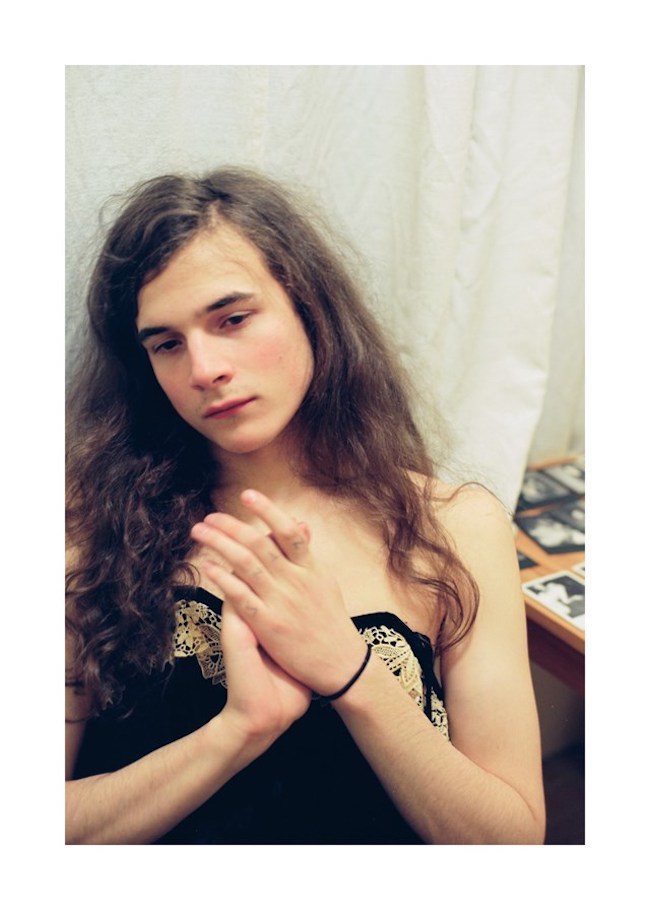Tyler Udall’s portraits of boys will make you feel better about the world. The Gen Z teens he shot over a period of three years in Vancouver are the photographer’s new friends — his previous work has centered on his pre-existing relationships — but you wouldn’t know it just from looking at the photos. Whether dressed in nightgowns and high heels or just laying supine on a stretch of beige carpet, the young men all appear radically vulnerable and fiercely unapologetic. At a time when adults with power seem committed to stalling progression in its tracks, and outdated modes of masculinity are still sadly rampant, this work feels more necessary than ever.
Udall himself has now moved from adolescence into adulthood. But his belief in young people’s ability to bring about change has definitely not been dampened. As his new series, ETUDES, opens at The Little Black Gallery in London, Udall tells i-D about approaching photos like first dates, and why creativity can change the world.
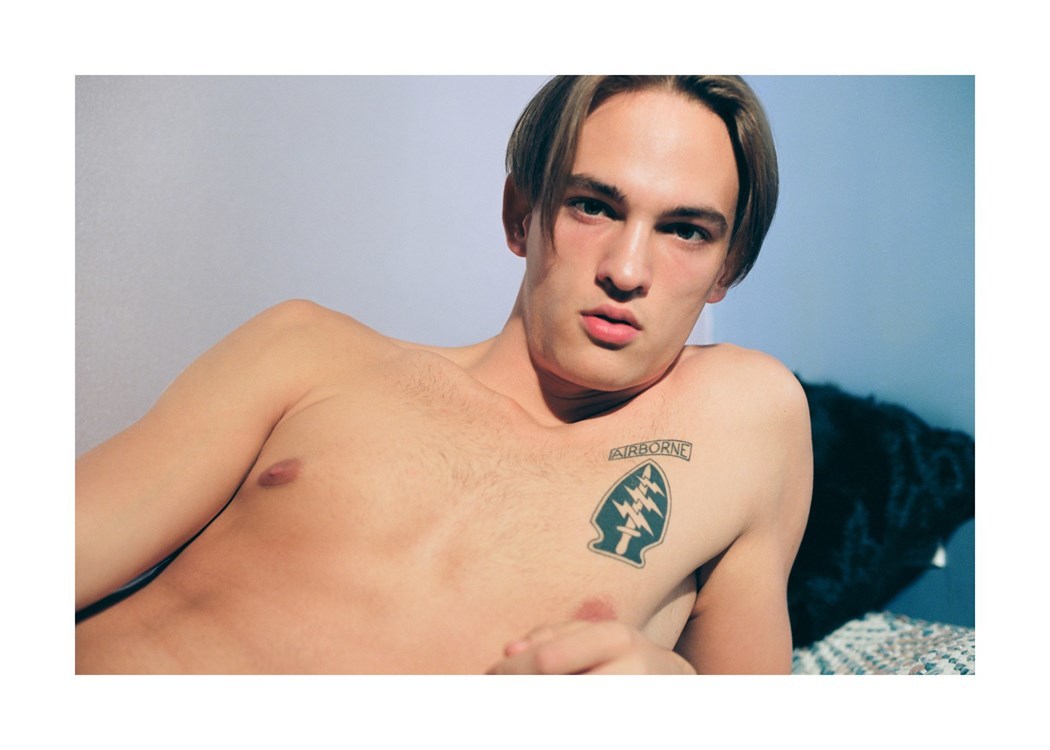
We last talked to you in 2015, when you had recently published your book Auguries of Innocence. Over the past two years, have you noticed a shift in cultural norms surrounding masculinity?
A global community of men is making a concerted effort to be more vulnerable and emotionally connected. Its growth seems to be exponential, while the fear of being stigmatized is getting smaller and smaller. We have also started to celebrate men that break traditional masculinity as a parenting tool. Something equally exciting to me is the amount of non-binary and gender-fluid people who are able to live more openly and authentically. That movement is still in its infancy, but it’s wonderful to see society take the next step towards inclusivity.
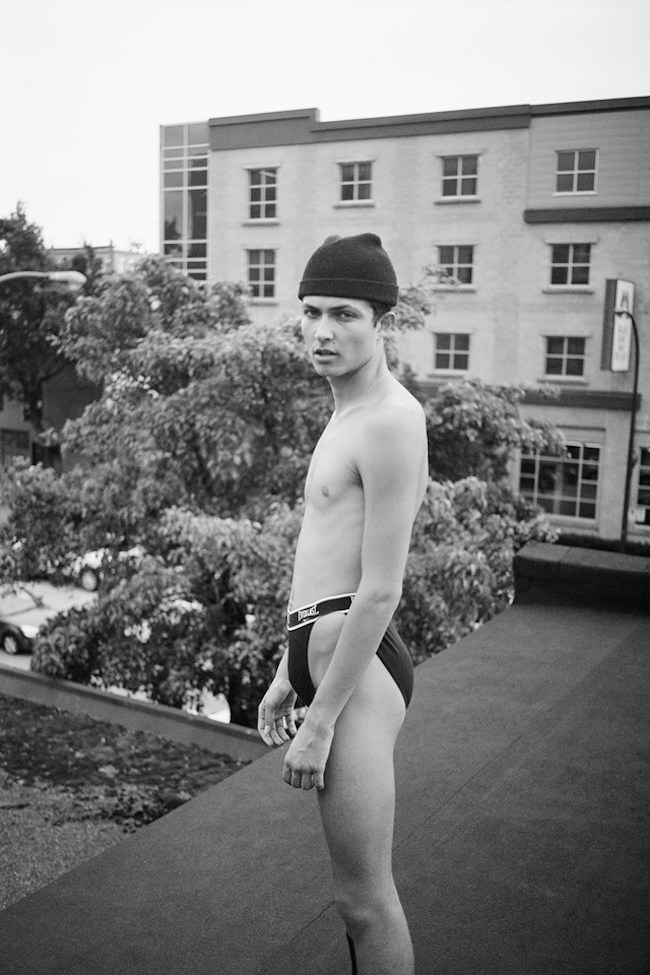
Your photographs are exceptionally intimate. Are these all people you know personally?
I know these people now, but the friends featured in this series were brand new relationships when they were photographed. Most of the images were taken on our very first meeting. I wanted to document what the fledgling stages of a relationship looked like. My spidey senses told me we would be good friends, and for the most part, I was right. I enjoy shooting in a one-on-one environment, almost like a first date. I try to document whatever kind of exchange happens in that space. I like to think that I make my friends feel at ease and at home. When people feel that kind of tranquility or peace of mind, the real good stuff comes out.

What is it about Generation Z specifically that excites you as a photographer?
How smart they are! Their levels of creativity and empathy are so sophisticated. How that filters into their day-to-day existence is inspiring, to say the least. I think the issues our world is facing, and will continue to face, will require a very different kind of problem-solving than we are used to. The solutions will be creative and they will be team-oriented. In my heart, I feel that Gen Z-ers will rise to the occasion in provocative and unpredictable ways.
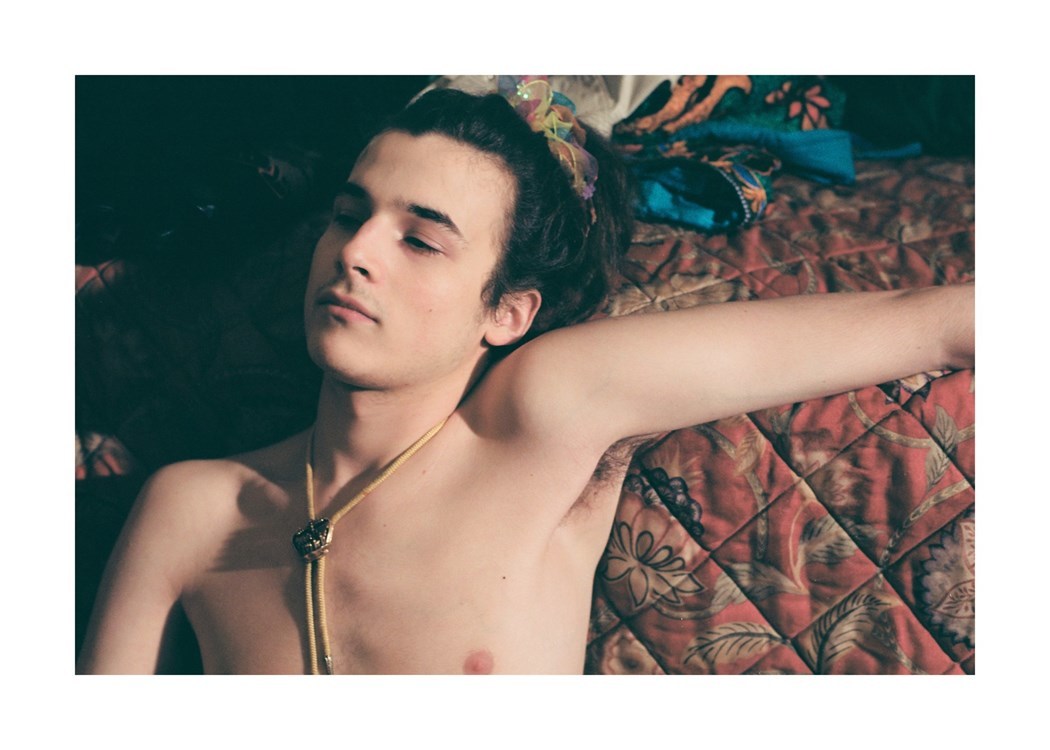
How has moving out of adolescence and into adulthood affected your approach to photography and storytelling?
I think I am a little more reverential now that I am older. I also think that my participation has become a little more observational. I used to be physically present in a lot of my images. There were a lot of self-portraits and images of me with my now- husband. I feel like I have stepped out of this tiny bubble, and am now dipping my toes into a lot of other people’s bubbles. As it turns out, I’m a bit of a voyeur!
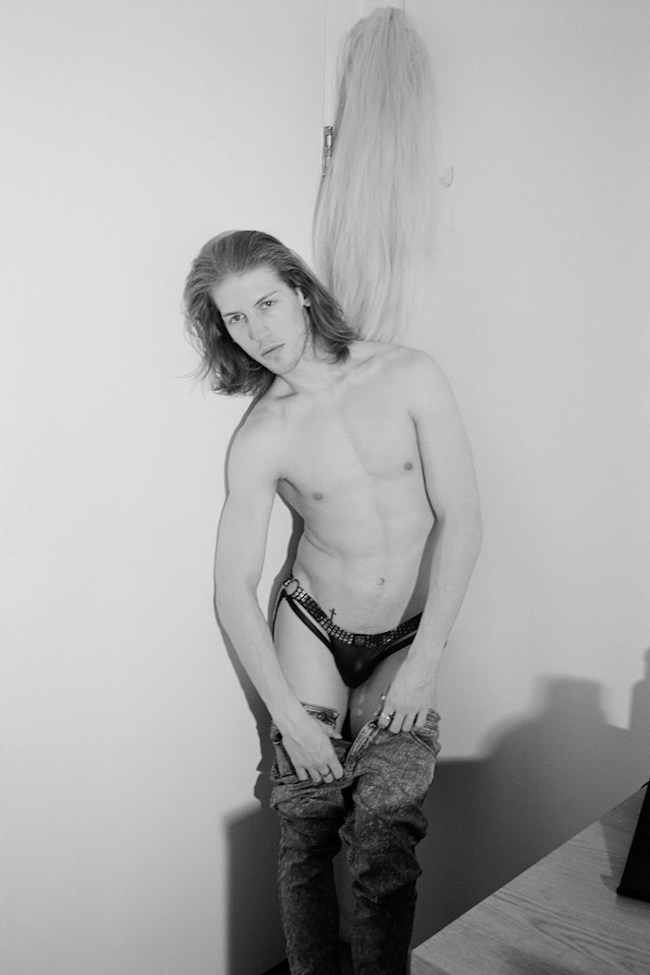
Coming from a fashion background, how important do you consider clothing when challenging norms and documenting a vision of progressive masculinity?
I think clothing is a wonderful tool to challenge cultural norms, especially when it comes to progressing our views on masculinity. To me, fashion is a direct reflection of a current social and economic mood. History books can lie, but if you really start to dissect fashion throughout the ages, you can get a crystal clear vision of what was going on in that time and place. To see so many men and non-binary people embracing fashion and makeup, typically associated with women, and using them in such fresh and modern ways, is a beautiful reflection in our cultural mirror. Given the current climate, I think we can all use a little more glitter, don’t you?
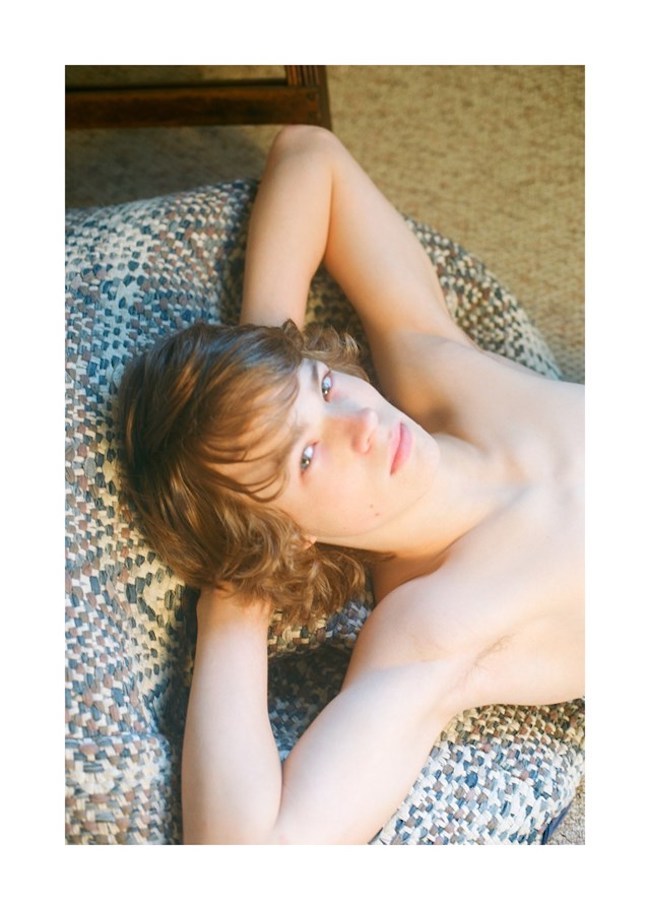
Is gender stereotyping something you consider equally when working, as you do in your other projects, with female subjects?
Honestly, I treat the females and males, everyone really, with the same lens. I’m interested in people’s truths and showing the most honest versions of themselves.
How do you find that responses to your work vary?
You know, I would say it’s less to do with gender and more to do with age, when it comes to the varied reactions to my work. My younger audiences seem to appreciate the entire body of my work, where the older clientele seem to have distinctly positive or (sometimes) adverse reactions to my images of men. Curiously, my images of women don’t ruffle as many feathers.
“Etudes” is on at The Little Black Gallery in London from May 30 through June 10.
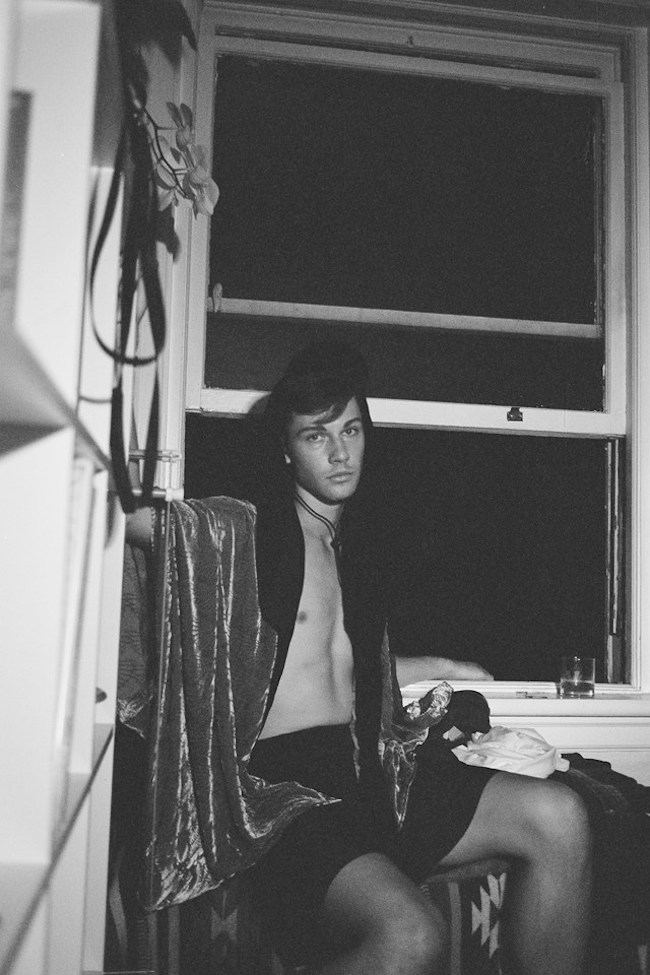

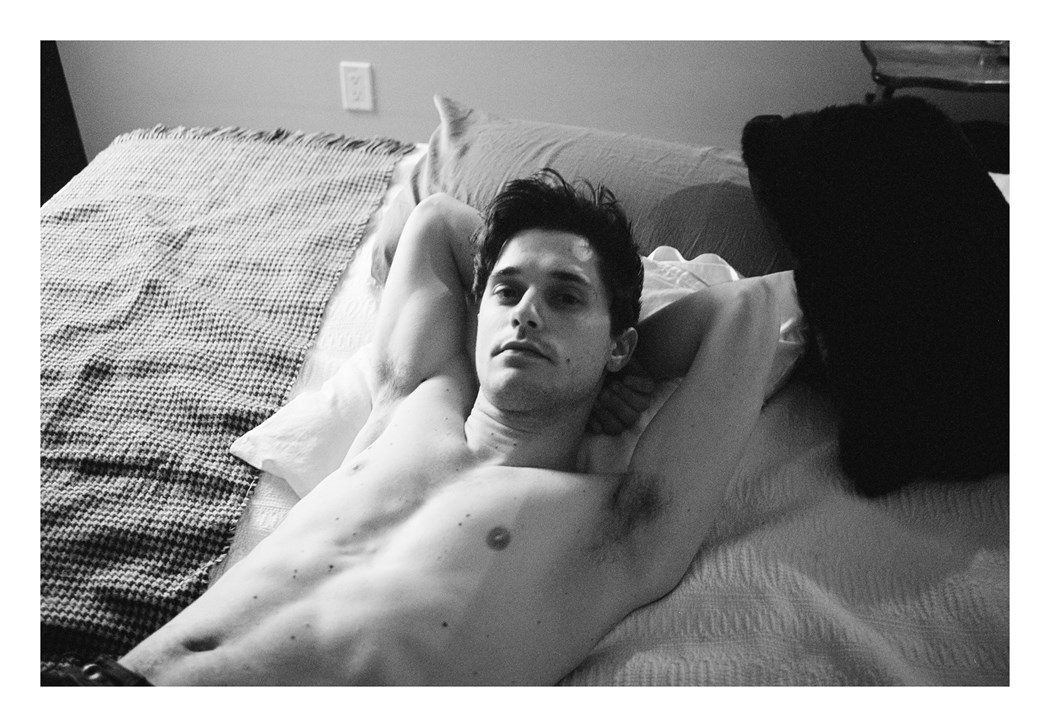
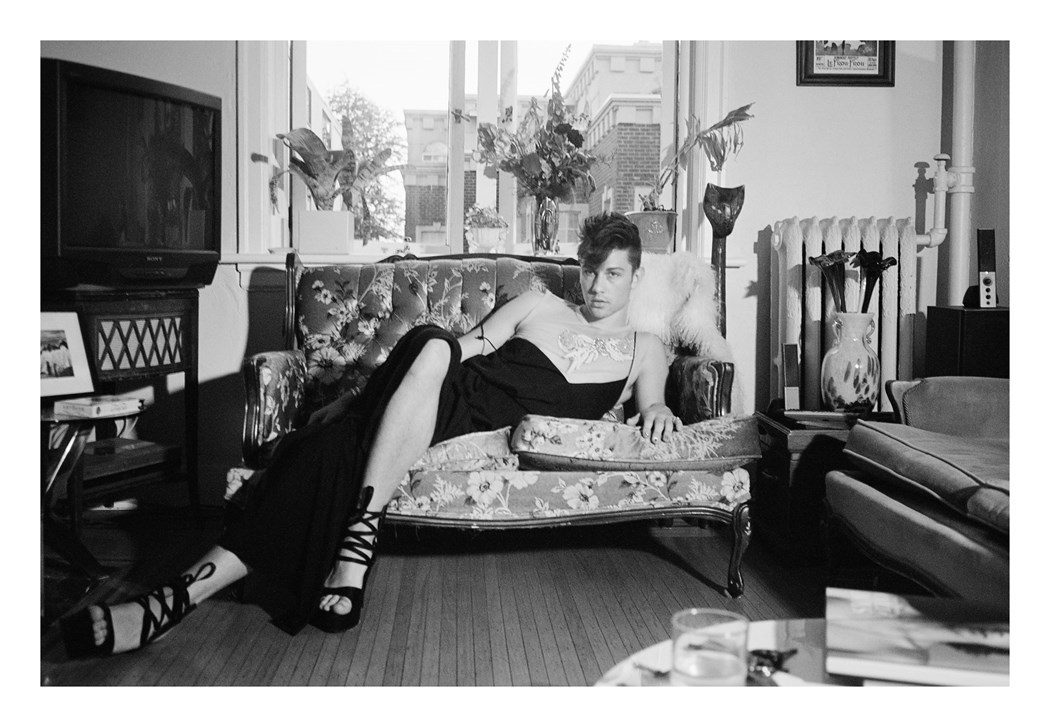
Credits
Text Hannah Ongley
Photography Tyler Udall, courtesy of The Little Black Gallery
